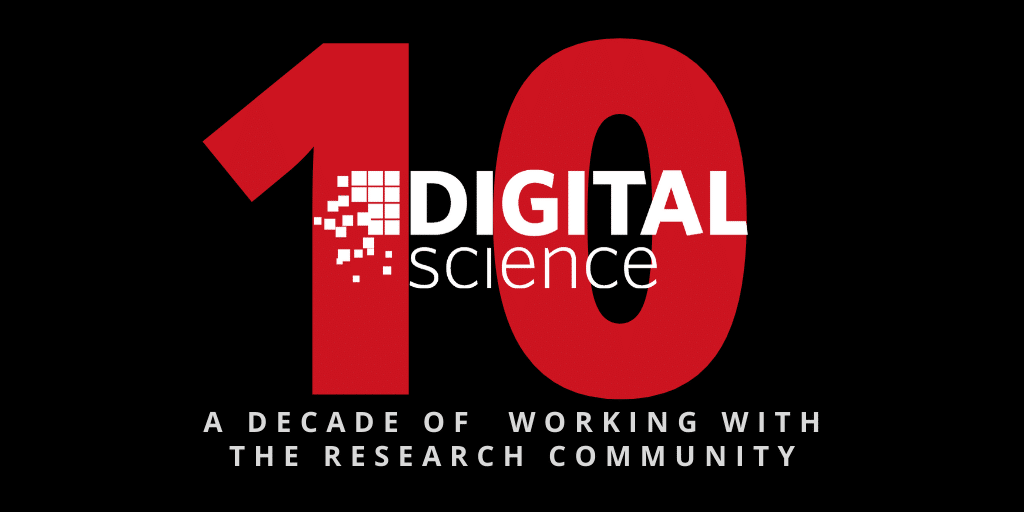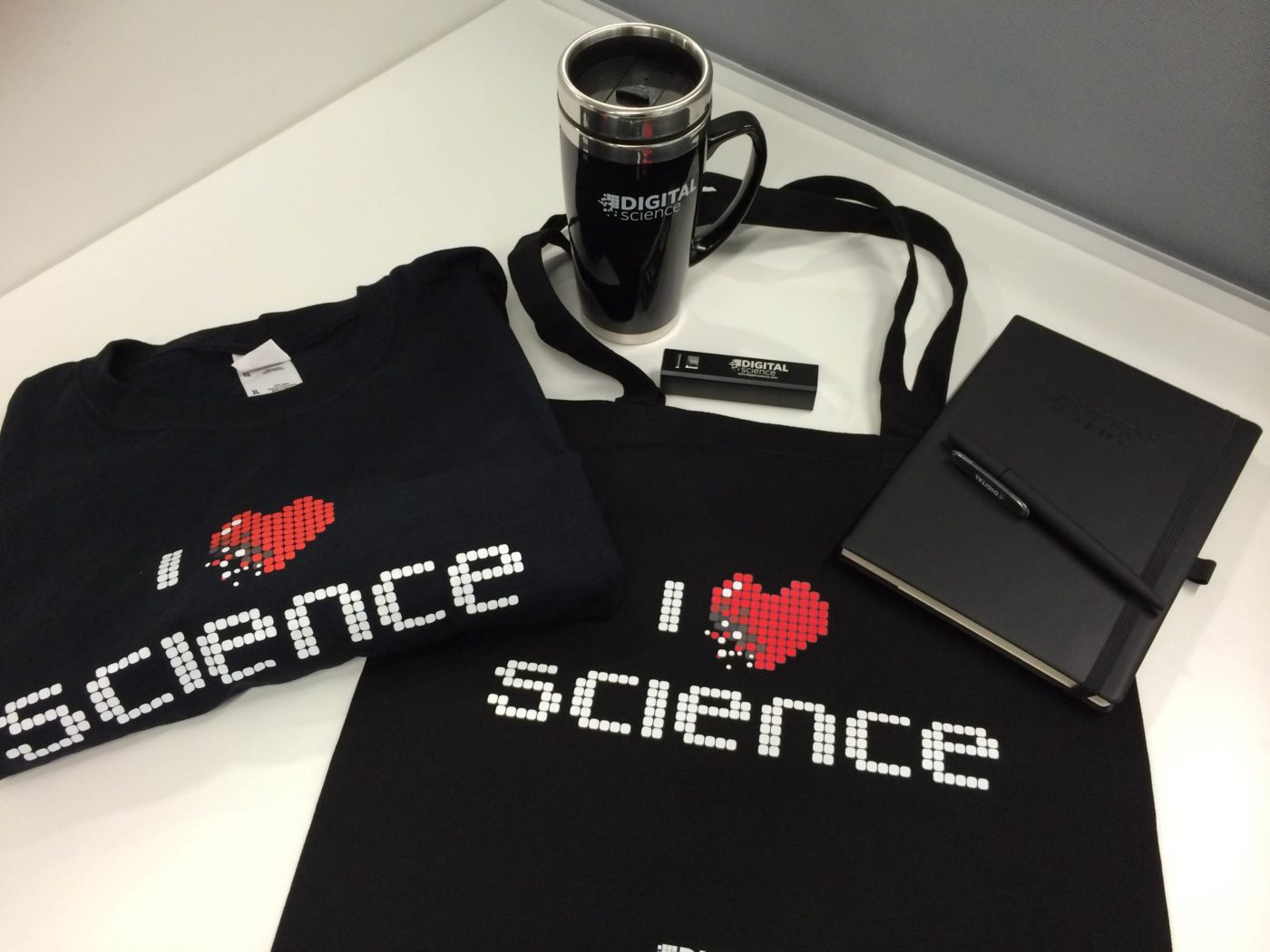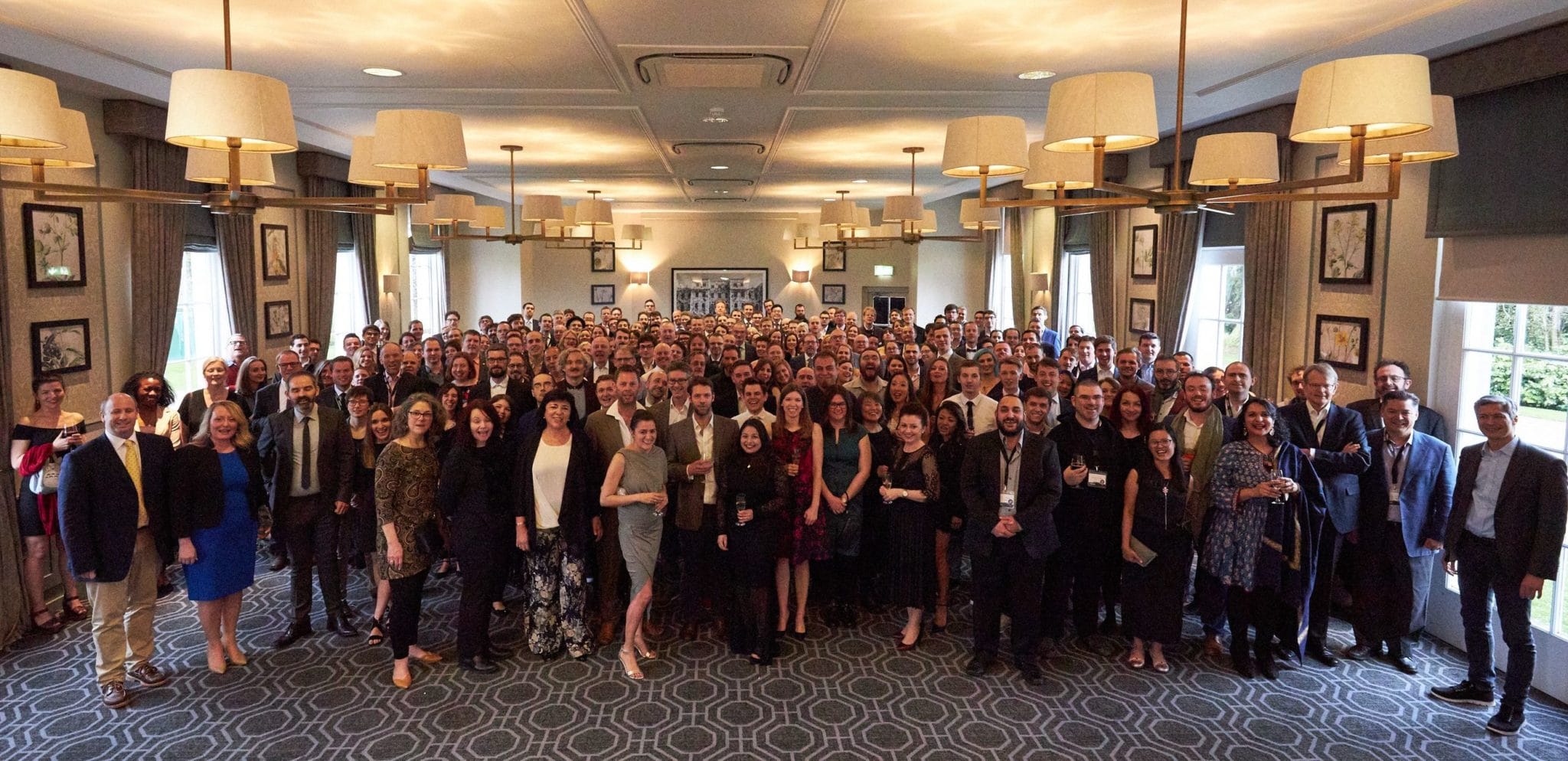Subscribe to our newsletter
Happy 10th Birthday Digital Science!

Digital Science is 10 years old!
Exactly 10 years ago, on 7th December 2010, a crowd had gathered in the atrium of the old Nature building in Crinan Street, with champagne glasses charged to toast the launch of a new initiative at Nature: A new division dedicated to the development of software to support researchers. That night had been several years in the making. A team from Nature had been working on “Project Babbage” (the code name for the project to create Digital Science) for at least two years (that I’m aware of) prior to that evening. I’m sure that still I haven’t met all of the people who made the announcement of that evening possible, even now 10 years later. But, as the CEO of one of the start-up companies that had formed the early phase of Digital Science’s development, I recall that evening vividly. Project Babbage would not have been possible without the insight, creativity and dedication of the team of people who found companies like mine: Timo Hannay, Annette Thomas, Jason Wilde, Dan Penny, and Sebastian Peck all deserve special mentions.
The team at Nature had come up with a characteristically imaginative approach that attempted to solve two problems at once: The internal challenge of creating corporate innovation, and the external challenge of supporting researchers at a time when technology and data were rewriting how research was both carried out and communicated. The central idea was that Digital Science should be an independent spin-out within Nature, with the ability to challenge established business models, even to be disruptive if need be. The core of this innovation engine would be created by investing in start-ups that were close to academia and to marry academic founders with entrepreneurs with the aim to build a single company over time.
On a personal note, unknown to the people enjoying their champagne downstairs at the drinks evening, the co-founders of Symplectic (John Fearns, Marko Ivin, Philip Parkin and I), Timo Hannay and Sebastian Peck, were in the Nature board room upstairs, finally signing investment paperwork that had taken much of the summer of 2010 to finalise. We headed downstairs to join the crowd and allow Timo to announce the launch and talk about the investments already made. Ink still wet.
Software that understands science
Digital Science described itself as providing “software that understands science”. I think that one of the first videos that the company produced said it best when it claimed that researchers needed a friend, an ally, and a partner. I like to think that Digital Science has lived up to that aim. While the company has certainly developed and changed in a decade, at its heart it remains dedicated to enabling and supporting not just researchers but everyone in the research world to achieve more by giving them the best tools that we can deliver.
In 10 years, the background in which we all work has changed a lot: technologically, politically and sociologically. Yet, the challenges we face are still recognisable. Often it is not the technology that defeats us, but rather the culture change needed for people to be able to see past constraints. Research has and will continue to change. Data will continue to rise in importance; technology will become more ubiquitous and will fundamentally change the relationship between researcher and research; all forms of diversity will increase in the research space. Digital Science will continue to support and contribute to positive change wherever it can.
Over the last decade, I like to think that we’ve played our small role in supporting change in the sector. Altmetric has helped to broaden the metrics discussion – away from single-data-points to a diverse collection of connections to different communities beyond academia; Figshare has contributed to the journey toward making research data open by default; Dimensions has allowed us to think beyond standard citation-based search and analytics, breaking down the barriers to bring context to decision-making and clarity to research discovery; Overleaf has made collaboration easier between millions of researchers; ReadCube has made reference management simple; Symplectic and CCT have supported institutions and funders to manage their processes and improve their internal data with industry-leading approaches. Ripeta and Writefull, both graduates of Digital Science’s Catalyst Grant programme, have developed next-generation capabilities that we believe will make their own contributions in the coming years.

Some of the famous Digital Science swag we have shared with our community during our first decade. Do you own any DS merchandise? Share a photo with us on Twitter, using the hashtag #DSis10!
The future
As I said earlier, technology isn’t usually the challenge – the real challenge is culture change. In ten years we have seen a lot of culture change – not all of it positive: the rise of alternative facts and fake news – where verification, research and trust play an increasingly important role; we have seen a global pandemic – where research has come to the rescue and developed a vaccine in record time; we have seen the clear signs of climate change – where global, collaborative research holds the only viable routes forward.
With that in mind, the outlook for Digital Science is perhaps slightly different now than it was on that night 10 years ago. The tools that underpin the work of researchers need not only to use the best technology but also need to be written with the limitations of that technology in mind, and with sensitivity to the cultural aspects of deploying technology into a complex, and often unconsciously biased,ecosystem that is increasing in its importance to the world. Just as responsible metrics has been a key discussion in the last 10 years, the next 10 years is going to be about responsible technology.
One thing, however, remains the same. Researchers, and Research as a whole, continues to need a friend, an ally, a partner. And Digital Science still aspires to be that partner.
Thanks
Digital Science has had the gift of an amazing team and it is certainly appropriate for me, on this 10th Anniversary, to acknowledge, thank and pay tribute to the wonderful team who have given so generously of their talent and of their time in support of what we do. We have also had the gift of an amazing community of collaborators, partners and customers, all of whom have contributed to getting Digital Science to its 10th Birthday. Thanks to all of you and here’s to the next 10 years!

The Digital Science Family at our 2019 Annual Retreat in Berkshire, UK
